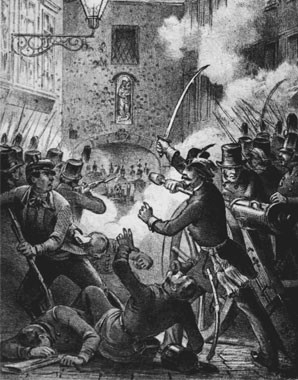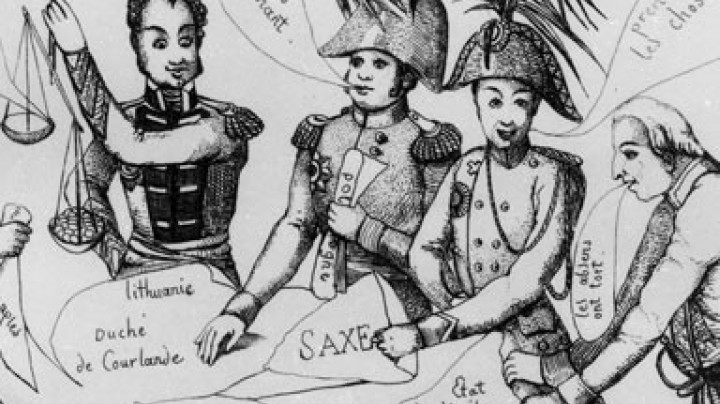Refined manners and genteel conduct
‘An educated and well-read person will seldom be in doubt as to the choice of a topic of conversation, particularly when conversing with friends, for social intercourse offers the widest range of starting points.’
Bärlein, Heinrich: Das Buch vom guten Ton. Ein unentbehrlicher Rathgeber auf dem Gebiete des Anstandes und der feinen Sitte (The Book of Etiquette. An Indispensable Guide to the Province of Decency and Refined Manners) Brünn/Vienna 1890.An educated and well-read person will seldom be in doubt as to the choice of a topic of conversation, particularly when conversing with friends, for social intercourse offers the widest range of starting points.
Books of etiquette such as the Buch vom guten Ton provided an introduction to correct social behaviour in the nineteenth century. These guides were aimed particularly at the middle classes, who in emulation of the strict etiquette that obtained in the Court Household (primarily members of the hereditary nobility) had also created rules of conduct and norms of behaviour. The fact that the middle classes had based these on aristocratic conventions made them a favourite target of cartoonists and satirists.
‘Education and property’ characterized this very heterogeneous social class that was made up of different professions, nationalities and confessions. The hope of the educated and mercantile middle class for a society of materially and intellectually autonomous and emancipated citizens was part of the ‘enlightened’ liberal principles of this new stratum of society. Many of them were entrepreneurs, bankers, financiers, lawyers and professors, and had campaigned in the revolution of 1848 for a constitution and a share in the political decision-making process. At the same time the liberal middle class was integrated into the authoritarian state order, with many of its representatives occupying leading positions. The Monarchy guaranteed the social status of the middle class, particularly that of the upper middle class. Curia suffrage more or less secured political participation for many of them and thus the revolutionary phase of this social class came to an end.














